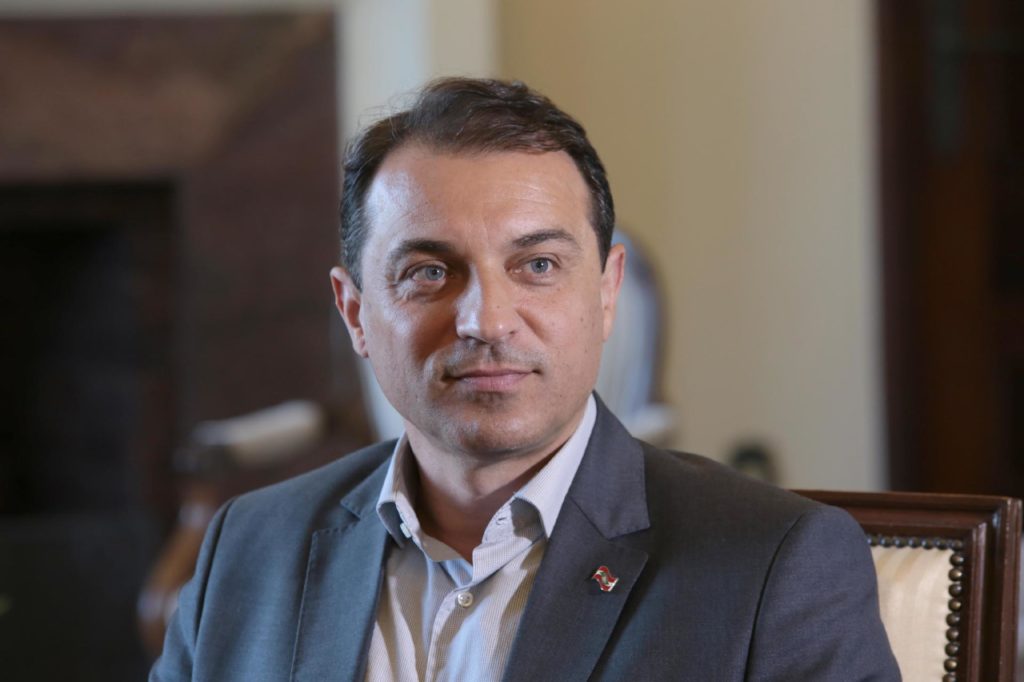RIO DE JANEIRO, BRAZIL – Santa Catarina Governor Carlos Moisés da Silva (PSL – Social Liberal Party) was acquitted in the special court of the first impeachment petition on Friday, November 27th. As a result, he is now back in office. The governor was tried for an impeachable “crime of accountability” for granting a wage raise to the state prosecutors.
He was acquitted by six votes to three, with one abstention. The trial occurred in the Legislative Assembly of Santa Catarina (ALESC), in Florianópolis, took about five hours and was over by 2:19 PM.
According to the Santa Catarina Court of Appeals (TJSC), Moisés will immediately return to his duties. He was officially notified of the decision at around 4:30 PM and gave a press conference at 5 PM to speak of his return to the government.

“The court, after deliberations, decided that Governor Carlos Moisés did not commit the crimes of accountability described in the representation and returns to office immediately,” said Judge Ricardo Roesler, presiding judge of the TJSC and the trial court, when reading the summary of the session.
Moisés had been removed from the position as governor since October 27th. This was due to the fact that the special court, in its October 24th session, decided to admit the accusation against him and reject the part referring to deputy-governor Daniela Reinehr. As a result, she has been acting governor since Moisés’ removal.
The ten members of the impeachment trial court were selected on September 23rd. A draw was conducted at the Santa Catarina Court of Appeals to select five judges. The remaining five judges were state deputies selected by ALESC.
The vote
The session began at 9:09 AM and was opened by presiding judge Roesler. During the morning, deputy Kennedy Nunes (PSD), who was rapporteur of the case, made a request for a collective viewing, but just before 2:00 PM he reversed it and the vote began nominally.
However, before that, judges were permitted to give individual opinions, from 12 noon onward. The members of the court anticipated the vote to reject and accept the impeachment request in their statements.
The governor could also speak, but preferred not to attend the session. He watched the trial from the Casa D’Agronômica. Only defense attorney Marcos Probst spoke.
Soon after the result, deputy governor Daniela praised the institutions and made herself available to the governor.
“The Joint Commission decided today for the return of Governor Carlos Moisés. Despite the wear and tear, the institutions were mature enough to identify potential mistakes and adopt sufficient and adequate control measures to maintain democracy and the public welfare,” she wrote.
How did the denunciation reach the trial court?
- The impeachment request was accepted by the ALESC on July 22nd.
- Eight days later, on July 29th, the assembly officially opened proceedings. A special committee was formed within ALESC to analyze the denunciation, and the rapporteur chosen was Luiz Fernando Vampiro (MDB).
- On September 15th, the committee unanimously voted to approve the report and to proceed with the denunciation. The target, in addition to Moisés and the vice-governor, was also ex-Secretary of Administration Jorge Tasca, but he resigned and was removed from the case.
- The report was voted in plenary at the ALESC by all deputies, which occurred on September 17th. First, there was a vote on the denunciation against the vice-governor, then on the governor. In both cases, the deputies chose to pursue the impeachment process.
- After this stage, the Special Trial Court was created, which removed Moisés but acquitted Reinehr.
Interim government
Daniela Reinehr assumed the government on October 27th. Since then, she has made several changes at the top level. Names were replaced at the State Attorney General’s Office (PGE), the Civil House, the Military House, the National Articulation, and the National Secretariat for Sustainable Economic Development.
In Reinehr’s government, the return to classroom activities in schools in regions classified as under serious risk for Covid-19 was also authorized. Initially, the TJSC had suspended the measure, but it was reversed after an appeal by the PGE.
On November 17th, the interim governor tested positive for coronavirus. She had mild symptoms and did not need to take medication, according to the state government. Because of her illness, she suspended in-person engagements and proceeded with her agenda remotely. On Thursday, November 25th, Reinehr announced that she had recovered and was ready to restart her activities in person.
Other impeachment requests
In addition to this process that temporarily removed him from office, Moisés is defending himself in yet another Trial Court. The governor is charged with a crime of accountability in the purchase of 200 ventilators for R$33 million paid in advance and with no guarantee of delivery and for the attempt to contract a field hospital in Itajaí.
On November 12th, the rapporteur of the second case submitted the report to the mixed court, comprised of five other deputies and five judges. The date for the reading and vote on the indictment has not yet been set.
A third impeachment request against the governor was delivered by the Parliamentary Commission of Inquiry (CPI) on Ventilators to the ALESC on September 8th. According to the assembly, this document was under review until the publication of this report. A fourth request, made by state deputy Ivan Naatz (PL), is also being examined.
Source: G1

